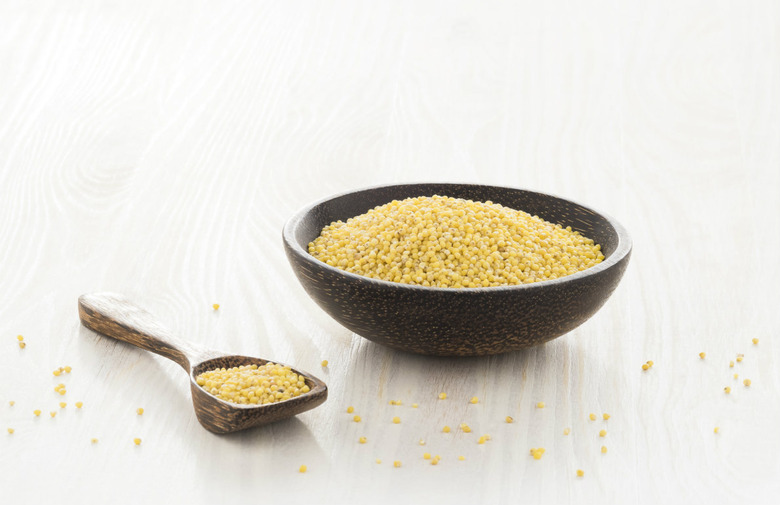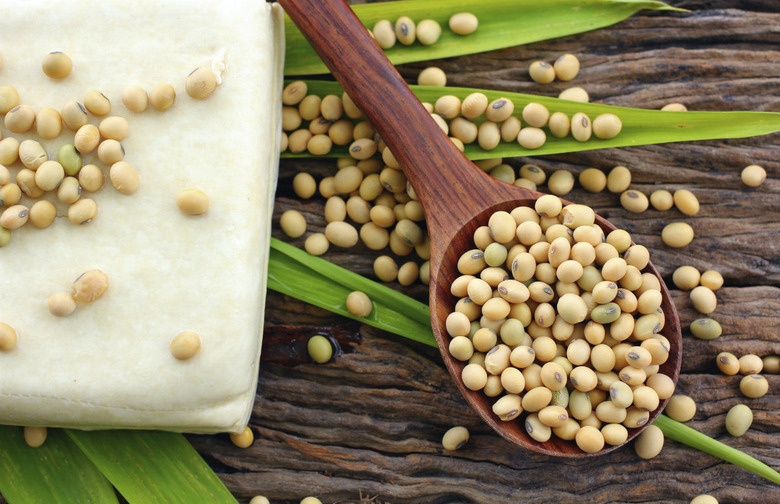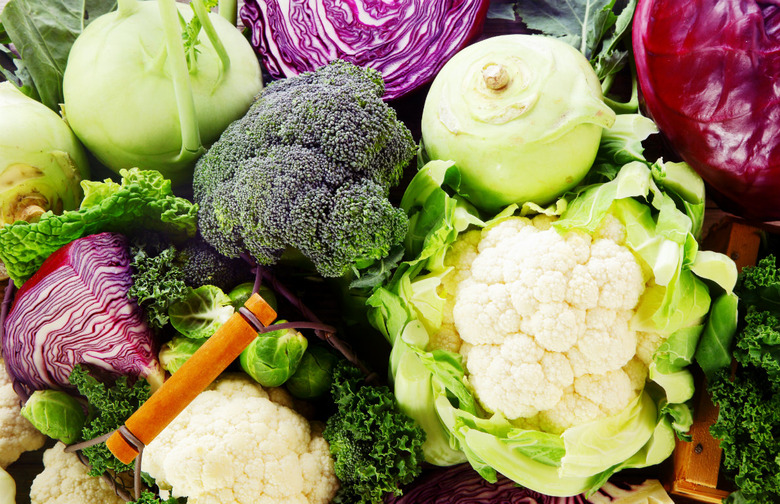Everything You're Doing To Ruin Your Metabolism, And What You Should Be Doing Instead
We may receive a commission on purchases made from links.
Metabolism — the process by which your body converts food into energy — can be affected by number of the things you do every day, both positively and negatively. Your individual metabolism is also dependent on a number of innate factors, including your age, sex, and size.
Two other factors affect your metabolism. One is the amount of energy it takes for your body to process your food each day, which stays relatively consistent. The second, as you probably guessed, is the amount of physical activity you engage in every day. As one study notes, "even trivial physical activities increase metabolic rate substantially," so exercise of any kind is the largest factor in determining your metabolism. That said, some people have a high basal metabolic rate (BMR), which means they burn more calories while at rest than those with a low BMR. It's not fair, but it's true.
We asked a few doctors and dieticians to guide us through the ways in which, through diets and regular habits, we might be getting in the way of our own metabolism and thyroid function.
Gluten
If you have an existing thyroid disorder, gluten — found in foods containing wheat, barley, rye, or spelt — can indirectly affect you by "irritating the small intestine and disrupting absorption of hormone medications," says Jennifer Cohen Katz, a culinary nutritionist and registered dietician.
Iodine-Heavy Foods
Although iodine is necessary for the production of thyroid hormones, it's possible to overdo it.
"Adequate iodine intake in essential to thyroid health," according to Katz, but "getting too much is a danger." Foods that are rich in iodine, like kelp, sushi wrapped in seaweed, seaweed salad, iodized salt, and iodine supplements, can disrupt thyroid function. "Excess iodine may cause flare-ups in individuals with thyroid disorders because it stimulates autoimmune antibodies."
Millet
Although millet a nutritious, gluten-free grain, large amounts of it may still suppress thyroid function, especially in those with an iodine deficiency.
Soy Joy
Although a medical consensus has not been reached, foods containing soy are not recommended for those with a known thyroid issue. "It is generally advised to limit soy foods for those with a thyroid dysfunction and for people taking thyroid medication," according to Katz. "The concern is that soy may hinder the absorption of thyroid medication."
Your Coffee Habit
For those who rely on thyroid medication, caffeine can interfere with absorption. Research suggests that you hold off on drinking coffee for at least an hour after taking medication.
You’re Not Getting Enough Sleep
Surprise: everything your parents ever told you about the importance of sleep was true, and it's affecting pretty much everything else in your life.
"Our poor diet in this country, which is high in caffeine and processed carbohydrates with a high glycemic index as well as insufficient amounts of omega 3s, also contributes to bad sleep in our society," Dr. Robert S. Rosenberg, board-certified sleep medicine physician, told the The Daily Meal.
"Insufficient and fragmented sleep results in stress that, in turn, leads to the production of hormones such as cortisol, adrenaline, and ghrelin. As a result, these hormones can cause an elevation of blood sugar, hypertension, and obesity. The take-home message is that we need to be aware of the fact that what we eat affects our sleep, and our sleep affects our health. Over the years, I have seen countless patients whose sleep and overall health improved dramatically when they understood the relationship of diet and sleep."
Dr. Rosenberg is the author of the book Sleep Soundly Every Night, Feel Fantastic Every Day.
Your Gender
Sorry ladies, but women are more likely to have thyroid disorders than men.
According to the Office of Women's Heath, a department of the U.S. Department of Health and Human Services, one in every eight women will develop thyroid problems during her lifetime. These problems can affect your menstrual cycle, initiate early menopause, and even influence your ability to get pregnant.
During pregnancy, which raises thyroid hormone levels, untreated hyper- or hypothyroidism can result in low birth weight, preeclampsia, and other serious issues.
Your Raw Diet
Cruciferous vegetables — including broccoli, cauliflower, cabbage, Brussels sprouts, kale, bok choy, and turnips — can all negatively impact thyroid function when consumed raw. According to Katz, the culprit is a compound called goitrin, which is released during the digestion process. "Goitrin can interfere with the synthesis of thyroid hormones, but this happens more frequently when there is an iodine deficiency," says Katz. "The good news is, cooking cruciferous vegetables alleviates this problem." Limit your intake of these vegetables to five ounces per day.
Things You Can Do to Maintain Your Thyroid Health and Metabolism
Eat a diet that is rich in selenium, most often found in fish and nuts. Selenium, which is required for the production of the thyroid hormone, has been found to help diminish rates of postpartum thyroiditis and definitive hypothyroidism.
Secondly, look for foods that are high in vitamin D, including fortified foods. A study of patients with hypothyroidism (underactive thyroid) found that vitamin D deficiency was significantly correlated with the severity of the disorder. If you do suffer from hypothyroidism, get screened for vitamin D deficiency and consider supplementing your diet.









